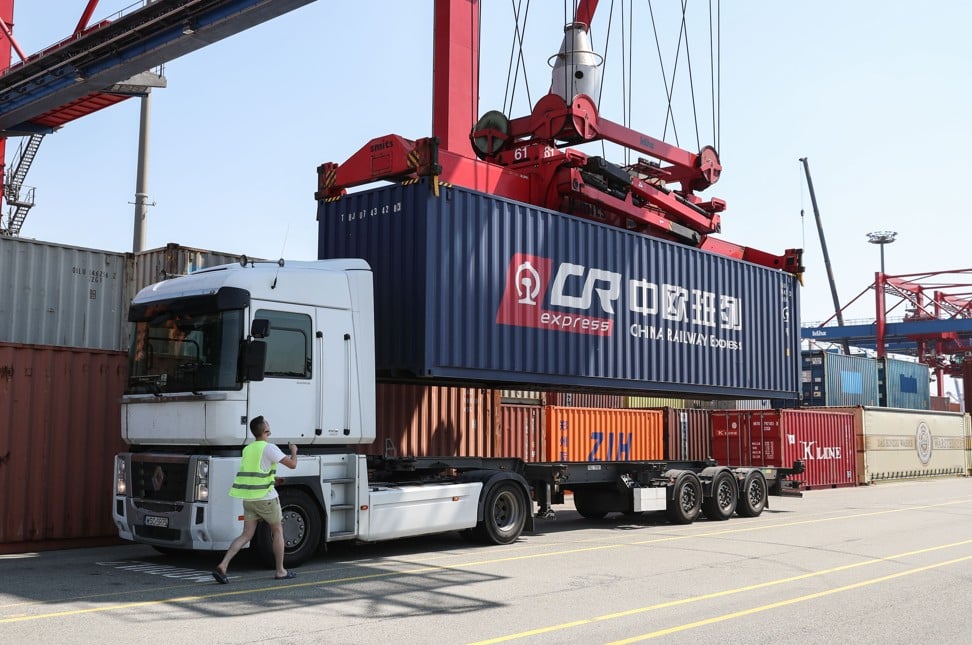
European chamber warns China may lose appeal for investors if it doesn’t act
EU business group’s members worry about market access and uneven treatment – and half say they fear regulatory hurdles could get worse
Without “meaningful” efforts to open up and level the playing field, China will lose its appeal as a top investment destination for foreign firms and its hi-tech ambitions could also be held back, the EU Chamber of Commerce in China said.
And nearly half of the chamber’s members polled are concerned that regulatory hurdles could get worse in the next five years, according to its annual business survey released on Wednesday.
The chamber also called for bilateral investment talks between Beijing and Brussels to be sped up to address the long-term concerns of European businesses over uneven treatment in regulation and investment. Foreign companies in China have long complained about these issues, and they are also part of the spiralling trade dispute between Beijing and Washington that has seen the two sides imposing tit-for-tat tariffs.
“The EU-China relationship is now at a critical juncture, and the time for increased dialogue and cooperation has arrived,” the chamber said in the report.
Beijing and Brussels are due to hold high-level economic talks in Beijing next Monday. Unequal treatment and lack of reciprocity in investment access – especially under China’s hi-tech industrial policy – are expected to top the agenda. Connectivity between EU projects and Beijing’s “Belt and Road Initiative”, a trade and infrastructure strategy, will also be discussed.
“The EU-China Comprehensive Agreement on Investment urgently needs to be completed. This would demonstrate China’s commitment to addressing many of the key challenges in its business environment and would give European enterprises more confidence to increase their investments,” the chamber said in the report, referring to ongoing negotiations for an investment treaty between the two sides.
European firms were also interested in being part of “Made in China 2025” – a strategy to support domestic technology – but worried about missing out on opportunities because the policy favoured their local rivals, the chamber said.
Another long-standing concern of many foreign companies operating in China is forced technology transfers. The chamber said 19 per cent of the companies surveyed – in sectors such as aviation, cars, chemicals and engineering – felt compelled to transfer technology.
Meanwhile, 43 per cent said they had found it more difficult getting access to the sectors listed under the Made in China 2025 policy, although access had improved for larger European firms, particularly in cars and machinery.
Companies surveyed identified the top regulatory obstacles as unfavourable treatment in dealing with administrative issues, discrimination in enforcement of rules, market access barriers and licensing requirements. Legal services, pharmaceutical and medical devices were among the sectors that reported the most cases of unfair treatment.
The chamber polled 1,195 members for the annual report in February and March, with 532 completing the survey.

Its report also warned that China risked losing some of its lustre for investors, who were concerned about market restrictions and uneven treatment, as well as possible capital controls and rising labour costs. These factors, along with the growth of emerging markets, could push European companies to invest elsewhere, it said.
“The pressure is now on China to further develop its institutions or risk current inefficiencies rendering any market opening meaningless. In short, maturing markets demand mature regulatory environments,” the report said.
Half of the companies surveyed said they expected to see “meaningful” efforts to open up and even out the playing field in the next five years, while the rest believed it would take longer.
“The ball is now in China’s court to decide how long it will wait before it follows through on its reform promises,” the chamber said.
European firms reported strong profits in China last year on resilient economic growth and increasing demand for quality goods and services from the middle class in sectors such as cars, medical devices and pharmaceuticals, according to the report. But telecoms and information technology firms were hit hard by the controversial new cybersecurity law, it said.
The chamber also called for transparency in the belt and road trade strategy. Half of the survey respondents said they saw business opportunities in the initiative, including in engineering, transport and legal services, but they were reluctant to get involved because there was a lack of transparency in the procurement and tendering process, as well as insufficient access to project funding.
According to the report, 61 per cent of the firms polled said the Chinese companies they worked with were equally or more innovative than they were, but that the country overall had yet to take the lead in more challenging areas such as engineering or scientific discovery.

